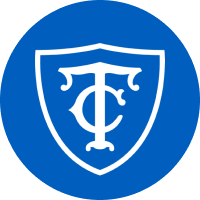Research and Information Services, Summer 2021: (Re)Visiting the Present


This photograph, from the Historical Photographs of Teachers College collection accessible through the library's PocketKnowledge online archive, is titled "Horace Mann School. View Toward The Hudson From The School. Teachers College. (Ca. 1902)." How is this to be understood? The identifiable features include Grant's Tomb, the Hudson River beyond it, and New Jersey on the other side of the Hudson. I think the structure in the upper right hand corner of the photograph is probably the Claremont Inn, a prominent establishment in the neighborhood from the mid-19th to the mid-20th centuries.
Otherwise, all of the structures are to me unrecognizable, though I'm sure identifiable through serious research in Morningside Heights history. What's really striking, of course, is the rurality of the scene and the predominance of unoccupied land and open spaces, with a few signs of the incursion of 20th century urban reality, including the structure in the upper left hand section of the picture that looks like it might be an apartment building on what would be Riverside Drive. The larger structure in the foreground, on the grounds of what is now Union Theological Seminary on Broadway, is mysterious, and definitely incongruous as nearly the only occupant of the large block to the west of present day Teachers College.
What's striking about this photograph is how alien the landscape is, and how utterly changed, and also how utterly lost. I think there may be, in the radical spatial transformation of what is now our neighborhood, a metaphor for the radical temporal changes that the pandemic has wrought. For those returning to campus for the first time since Spring 2020, there will be few visible changes to the neighborhood, beyond the disappearance of several favorite eating places nearby, and the arrival of a couple of incongruously tall structures within blocks of the TC complex. And those arriving at Teachers College for the first time in person, after a year and a half of remote study, will find the academic environment much as it was for their predecessors, with a few significant alterations, including the need for daily health checks, continued on-site masking, and the increasing presence of virtual and hybrid teaching modes.
My suspicion is that the academic grounds on which we soon convene will be as as fundamentally changed as the view toward the Hudson River from Horace Mann has changed since 1902, though superficially very little changed since March 2020; as of course the world and our lives have fundamentally changed (though superficially little changed). My suspicion too is that there may be some degree of nostalgia for the place in which we found ourselves, together though separated. It's cliché to say that all change is stressful, but if any era brings this truism home, it's certainly the COVID-19/-20/-21 era. It's more than important for all of us to keep in mind how alien we may find, or are finding, this brave new world, and how utterly changed it is from what we remember it to have been, and also how utterly lost that world (like all the past) may be. And of course more than important that we celebrate all aspects of this extraordinary new reality, all the loss without which there is no gain.
Happily, as always, Teachers College students this summer brought to us their very important and challenging topics and areas of inquiry with which they sought our research assistance and support, and which we did our best to provide via Zoom. The following is a selected list of the searches on which our users were launched:
- Exploring the comparative strengths and shortcomings of the citation management systems Zotero and Mendeley
- Searching the literature on English language learners and reading comprehension in secondary schools, specifically in Biology
- Research on how information is currently communicated to students and their families about the earnings benefits of college attendance
- Seeking research on Asian American leadership positions in high schools
- Searching for articles on role models in STEM education for students from underrepresented groups in grades 1-3
- Review of databases enabling cited reference searching (Web of Science, Scopus, Google Scholar)
- Looking for articles related to research on ESL Elementary students and teaching editing skills
- Assistance with conducting a literature review focused on teaching writing to SLIFE students
- Seeking a scientific article from a peer-reviewed journal, published in the last 10 years, that includes intervention research comparing s a treatment v. control group on some child/family intervention involving either relationship building or healthy boundary setting within family management
- Assistance with doing research on acquisitions of non-profit organizations by for-profit enterprises
- Research on how teacher education programs use alumni feedback to make programmatic changes to their TE courses and fieldwork
- Seeking an overview of the components and processes of conducting a systematic review
- Seeking to obtain the most recent 50 dissertations of students at Teachers College in mathematics education; also looking for material on supporting new mathematics teachers (teachers who have taught for 5 years or less) to become teachers who will improve their students achievement; additionally seeking a list of mathematics books which would offer greater insights on how to support mathematics teachers to develop their teaching expertise
- Seeking assistance with conducting a systematic review on the effects of exercise and physical therapy on amyotrophic lateral sclerosis (ALS)
- Assistance conducting a scoping review about international use of Matrics Consensus Cognitive Battery; also having issues with SpringerLink database
Nearly finally, these are some basic statistics on research and information services delivered to students, faculty, and researchers during Summer 2021:
- In Summer Sessions A and B, librarians answered 469 queries submitted via the library's email Ask a Librarian ticket system; these included reference and information questions, requests for one-on-one research consultations, questions concerning access to the library's physical space and the possibility of borrowing or returning print books in the collection, and were additional to queries fielded by Services Associates, all transacted virtually through the email query and live chat service options.
- In the course of the summer terms, Services librarians provided research consultations for 20 students via Zoom, exploring resources and search strategies of relevance to their topics or disciplines.
- Our irreplaceable Services Associates fielded 820 queries submitted via our live chat service; many of these were passed along to Services librarians and eventuated in research consultations conducted via videoconference (Zoom).
Really finally, during the past year I have been privileged to work closely with Rachel Altvater, who served as Assistant Research and Information Services Librarian and who shared with me responsibility for research assistance queries, research consultations, and library instruction sessions; we collaborated or co-presented for some of these. Our more or less daily communication has been a really important lifeline for me, on a professional and personal level, for which I'll always be grateful (and a little nostalgic, I suspect). Rachel's contribution has been incomparable, and the library is extremely fortunate to have had and to have her on staff.
I'm also delighted to have been joined in reference service by Lorraine LaPrade, our new Research and Instruction Librarian, whose contributions have already been considerable (take a look at her wonderful new Guide to Educat+, an overview of search options and strategies for the use of our new discovery search system), both as a Services Associate and now as a full-time member of the professional reference team. Lorraine has been a distinguished colleague since she joined the library staff in 2015, she has a bright future at Teachers College and elsewhere, and she will clearly bring new ideas and new energy to the work of serving the research needs of the community. Welcome, Lorraine, and thanks always, Rachel!

